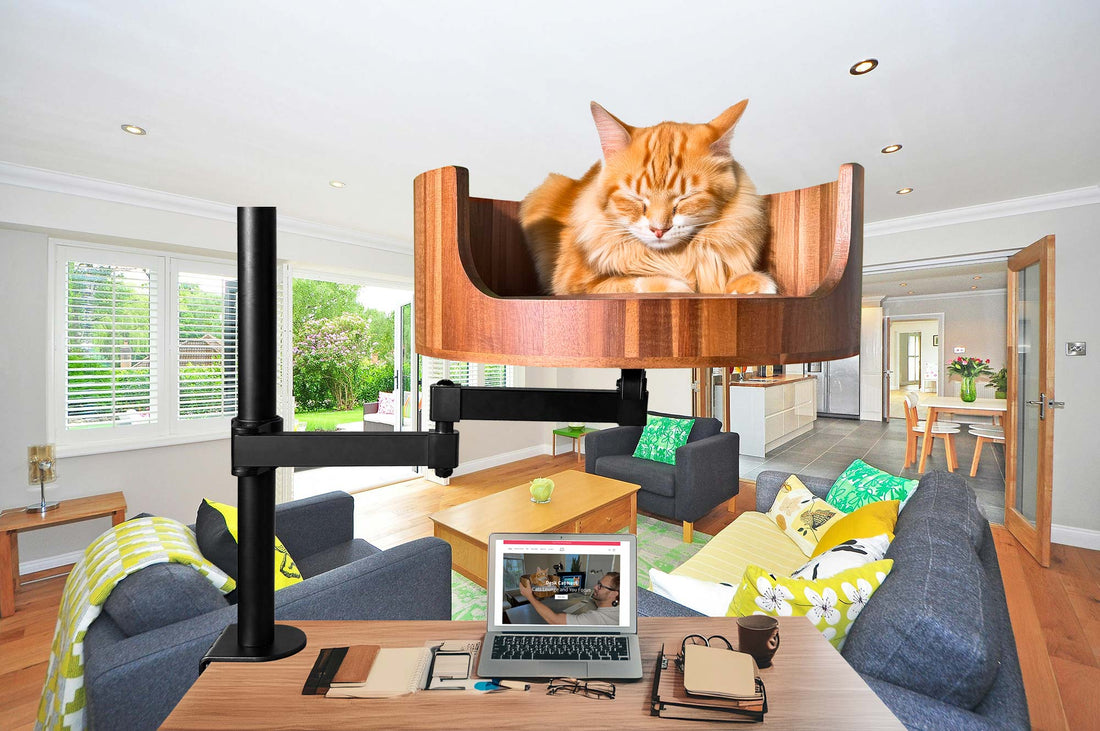
Do Cats Blink? Understanding Feline Eye Behavior
Share
Have you ever wondered why cats seem to stare at you without blinking for long periods of time? In this article, we will explore the fascinating world of feline eye behavior, including the question of whether or not cats actually blink. Understanding how cats use their eyes can provide valuable insights into their overall behavior and communication methods.
Cats are known for their mysterious and aloof nature, and their eyes play a crucial role in conveying their emotions and intentions. From the slow blink of contentment to the wide-eyed stare of fear, feline eye behavior is a complex and intriguing aspect of cat communication. By delving into the science behind cat vision and eye movements, we can gain a better understanding of our feline friends and learn how to better interpret their subtle cues. Join us as we unravel the mysteries of cat eye behavior and discover the secrets hidden behind those mesmerizing eyes.
1. Cats do blink, but less frequently than humans, as they have a third eyelid called the nictitating membrane that helps protect their eyes.
2. Slow blinking is a common behavior in cats that signifies trust and relaxation, often seen between cats and their owners.
3. Rapid blinking may indicate stress or discomfort in cats, potentially signaling the need for intervention or a visit to the veterinarian.
4. Understanding feline eye behavior can help cat owners better communicate with and care for their pets.
5. Observing your cat's blinking patterns can provide valuable insights into their mood and overall well-being.
Do Cats Blink?
Cats do indeed blink, but unlike humans who blink frequently throughout the day, cats tend to blink less often. This is because cats have a third inner eyelid called the nictitating membrane, which helps protect their eyes and keep them moist. The nictitating membrane acts like a windshield wiper, sweeping across the eye to remove debris and lubricate the surface. So while cats do blink, their blinking behavior may not be as noticeable as it is in humans.
Feline Eye Behavior
Cats use their eyes to communicate a wide range of emotions and intentions. For example, dilated pupils can indicate excitement or fear, while narrowed pupils may signal aggression or contentment. The position of a cat's ears, whiskers, and body language can also provide additional context to understand their eye behavior. By paying attention to these cues, cat owners can better understand and respond to their feline companions' needs and emotions.
Signs of Eye Health Issues
While cats are masters at grooming themselves, they can still experience eye health issues. Some common signs of eye problems in cats include excessive tearing, redness, cloudiness, squinting, or rubbing at their eyes. If you notice any of these symptoms, it's important to consult a veterinarian for a proper diagnosis and treatment. Ignoring eye health issues can lead to more serious complications and discomfort for your cat.
Conclusion
Understanding feline eye behavior is crucial for cat owners to ensure the health and well-being of their beloved pets. By observing their cats' blinking patterns, eye movements, and other facial cues, owners can better interpret their cats' emotions and address any potential eye health issues promptly. Remember to consult a veterinarian if you have concerns about your cat's eye health and behavior.
Frequently Asked Questions
Do cats blink often?
Cats do blink, but not as frequently as humans. They usually blink less often than humans, as their eyes have a third eyelid called the nictitating membrane that helps keep their eyes moist and protected.
Should I be concerned if my cat doesn't blink often?
If your cat is not blinking very often, it may be a sign of an underlying eye issue or discomfort. It is advisable to consult a veterinarian if you notice any changes in your cat's blinking behavior.
Is the Desk Cat Nest a suitable solution for cats who don't blink often?
While the Desk Cat Nest provides a comfortable resting place for your cat, it is not specifically designed to address blinking issues. If you are concerned about your cat's blinking behavior, it is best to seek advice from a professional veterinarian.
Can the Desk Cat Nest help keep my cat's eyes moisturized?
The Desk Cat Nest can provide a cozy and stress-free environment for your cat, which may contribute to overall eye health. However, it is essential to ensure that your cat's eyes are regularly checked by a veterinarian to address any specific eye health concerns.
In conclusion, the Desk Cat Bed is a valuable choice for cat owners looking to provide a comfortable and secure place for their feline friends to rest and relax. By offering a cozy space within arm's reach, this cat bed encourages cats to blink more frequently, promoting better eye health and overall well-being. With its durable construction and plush design, the Desk Cat Bed offers a practical and stylish solution for keeping your furry companion happy and healthy.



















































